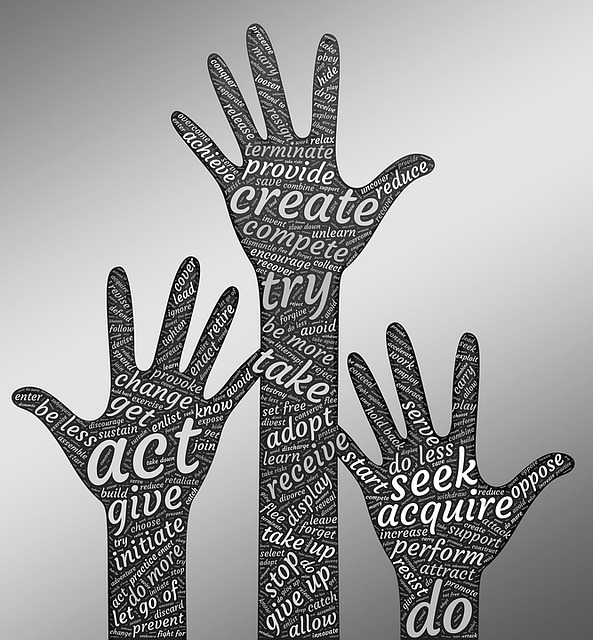Tami Simon, in a recent interview podcast, spoke to Dr. Lisa Lahey about her co-authored book, Immunity to Change: How to Overcome It and Unlock the Potential in Yourself and Your Organization. Lisa is also a member of the faculty for the Inner MBA, jointly conducted by Sounds True in partnership with New York University, Wisdom 2.0 and LinkedIn. In the interview, Lisa and Tami explore our self-protection mechanisms, the need for courage to overcome them and the importance of supportive challenge to sustain significant personal change.
Our self-protection mechanisms create an immunity to change
Our self-protection mechanisms are designed to protect our sense of self-worth and overall psychic health – they stop us from doing things that would be harmful to our psychic welfare. Research and experience demonstrate, however, that that many people in organisations find it difficult to make positive behavioural changes that would make them a better staff member or manager. For example, staff may not change inappropriate behaviour despite regular corrective feedback and a manager may not be able to delegate effectively despite their belief in the need for delegation.
Lisa maintains that the real barrier to these desirable behavioural changes is not a lack of procedural or technical knowledge but the need to change our “inner landscape” – made up of our beliefs, inner rules, feelings, self-stories and assumptions about our self, others, and our world. Many behavioural changes in an organisational setting require these “adaptive changes” – becoming aware of the specific, inner landscape barriers to a focal behavioural change and working consciously to remove them. This perspective advanced by Lisa lines up with our earlier discussion of “absolutes” and their impact on our thoughts, feelings and behaviours.
Lisa likens our inner landscape to our immune system which is a self-protection mechanism designed to protect us against infection. Our immune system, however, can also work against our physical welfare. This can happen when it becomes hypersensitive to foods that would otherwise be good for us and creates inflammation in the form of rashes, hives, and other manifestations of food intolerance and allergies. Another example is when the immune system rejects a liver or heart after a transplant. Our inner landscape, just like the self-protective mechanism of our immune system, can work against making and sustaining desirable, personal behavioural change (whether within an organisational setting or in daily life with our family).
Making adaptive change through the “immunity change process”
In her Book, Immunity to Change, Lisa provides a detailed four-step process for making adaptive change which she calls “the immunity change process”. In the podcast interview, she offered a brief description of each step and these are illustrated below:
- Have a clear goal in mind – Clarity around your behavioural change goal is critical because it enables a focused exploration of your “inner landscape”. Lisa gave the example of her gaol to overcome the fear of public speaking. Here I will focus on the goal of improving delegation as a manager, drawing on my experience working with managers over many years.
- Honest exploration of your self-sabotaging behaviours: As a manager, you might work against the achievement of your delegation goal by constant interference/ checking in with the person to whom you have delegated work (the delegatee), expressing a lack of trust in the delegatee’s ability to complete the work successfully, showing increasing signs of nervousness, and/or being unclear in your instructions/requirements when establishing the delegated task. These behaviours can feed your anxiety cycle and thwart effective delegation to the delegatee and, at the same time, undermine their confidence so that they do not do the delegated job very well (an outcome that reinforces your belief system about the threats to your self-worth involved in delegating).
- Honest exploration of your inner self-protective goals: These inner goals lie beneath your self-sabotaging behaviour and provide the unconscious rationale for behaving in a way that works against the achievement of your goal. These self-protective goals could include trying to avoid the embarrassment of staff making mistakes, ensuring the security of your own job, maintaining a sense of superior knowledge and skills (“better than”) or avoiding being seen as lazy.
- Identifying and challenging the underlying assumptions that give rise to the self-protective goals: These could include the assumption that if the delegatee becomes really good at their work your job will be at risk, they will see any poor work that you have done in relation to the delegated task, they might do it the wrong way if you don’t constantly check on them, you will be seen as incompetent if they do the delegated task poorly or you will lose control of the task and the delegatee and reduce your influence. These assumptions are interrelated and self-reinforcing, reducing your capacity to see possibilities and explore creative options. Once these underlying assumptions have been surfaced, you can challenge them by exploring alternative assumptions. Lisa suggests, for example, in relation to delegation, that the process could be seen as adding real value to the organisation and the delegatee by enabling them to be the best they can be. This not only contributes more fully to the achievement of organisational goals but also builds staff motivation and mental health through providing a sense of agency. Also, as neuroscientist Tali Sharot explains, you grow your influence by letting go.
Reflection
Our inner landscape acts as both a self-protective mechanism building our self-esteem and a self-sabotaging system that comes into play when we perceive that our self-worth is under threat. As we grow in mindfulness through reflective processes such as the “immunity change process”, we can become more aware of our self-sabotaging behaviour, our unconscious self-protective goals and the underlying assumptions that hold them in place. As we challenge our assumptions and associated expectations, we can break free of their hold over us and be open to creative options that we can pursue with courage and persistence.
________________________________________
Image by Peter Perhac from Pixabay
By Ron Passfield – Copyright (Creative Commons license, Attribution–Non Commercial–No Derivatives)
Disclosure: If you purchase a product through this site, I may earn a commission which will help to pay for the site, the associated Meetup group and the resources to support the blog.







